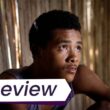Alex Heeney reflects back on the best films of 2023.
Discover more Seventh Row Best of Lists here
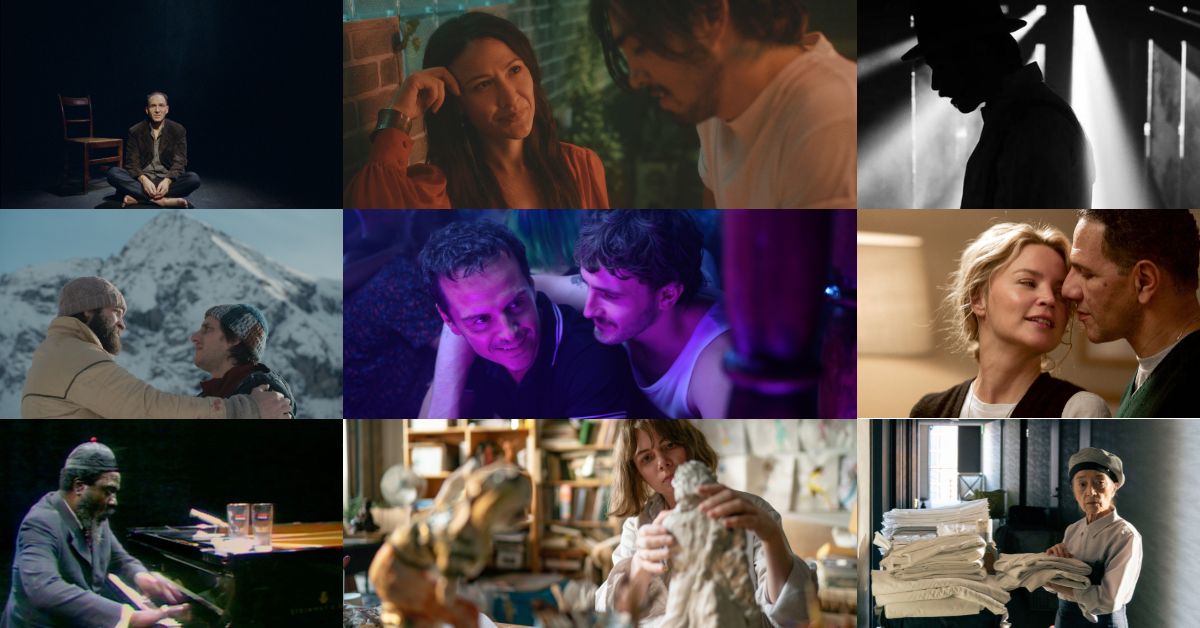
Discover one film you didn’t know you needed:
Not in the zeitgeist. Not pushed by streamers.
But still easy to find — and worth sitting with.
And a guide to help you do just that.
As usual, my list of the year’s best films is off the beaten path. You won’t find a single blockbuster here. Only two are American. More than half of them are directed by women. Only one is likely to get Oscar nominations (though one more could sneak in). And yet these are the films I loved most, that I’m still thinking about months later, that I’m sure to rewatch.
When I made a list of my top 40 films, it included familiar favourites like Oppenheimer, The Holdovers, No Hard Feelings (It’s actually good!), Passages, and Killers of the Flower Moon. I would have loved to make room for indie favourites that should be on your radar like the documentary Is Anybody Out There?, the quirky comedy Fremont, the hilarious Canadian sci-fi Viking, Hong Sang-soo’s pandemic-set Walk Up, and Nicole Holofcener’s marriage comedy You Hurt My Feelings — one of the most enjoyable films I watched this year that sadly didn’t work nearly as well on second viewing. Ultimately, I decided you don’t need me to sing the praises of movies that have already dominated the awards conversations, especially since they’d all be in the bottom 20 of my top 40.
I’ve gone by US release dates except for the two films that, to my knowledge, don’t yet have a US or international distributor: The Strange Case of Dr. Jekyll and Mr. Hyde was released in the UK; Stellar was released in Canada.
About the list
The list features 12 women-directed films, three first features (additionally noted with a *), two radical adaptations/recordings of plays, and five documentaries. Most of the films come from France (9), the UK (3), and the US (3). The remaining films are from Japan, Canada, Chile, Belgium, Italy, and Mexico. A few films are co-productions with overlapping countries here, and some are not listed.
Publishing this list in February 2024 makes it technically “late.” It’s become de rigueur for film critics to release their best-of-the-year lists in early December, including many films that won’t get a proper theatrical release until February or March 2024. Before I had press access privileges, this frustrated me because seeing half the films listed was impossible.
Critics tend to go by “qualifying run” dates, which means if a film screened in NYC or LA for one week in the fall so it could qualify for Oscars, it counts as that year — even if the roll-out comes in the next year. At the time of publishing, everything on my list has been screened in major cities (beyond NYC/LA), and almost everything is in cinemas now or on VOD/physical media. A couple of films are between theatrical run and home video release.
I’ve included the films’ premiere dates in part to indicate just how long it can take for great films to finally make their way to our screens.
Honourable mentions
Some of my 2023 favourites from my list of the Best Films of 2023 so far didn’t make the final end-of-the-year cut, but they’re still worth catching up on, including Sick, Will-o-the-Wisp, Viking, and You Hurt My Feelings.
There were several excellent debut features last year that I loved, aren’t getting much attention, and deserve to be seen. These include Céline Devaux’s Everybody Loves Jeanne, Jamie Dack’s Palm Trees and Power Lines, Charlotte Le Bon’s Falcon Lake, and Charlotte Regan’s Scrapper.
20. Anatomy of a Fall (Justine Triet, France)
Won the Palme d’Or at the Cannes Film Festival in 2023, where it premiered in Competition.
I went back and forth on including this film on the list. It’s nail-bitingly watchable, and Sandra Hüller is fantastic, as always. I’ve been a long-time fan of Triet’s ever since In Bed With Victoria (2015) and her masterpiece Sibyl (2019). Anatomy of a Fall is weaker than Triet’s masterpiece Sibyl, but the first viewing was hugely absorbing and entertaining. On second viewing, some issues with the screenplay became more glaring. The whole thing felt clunkier. It’s also the most beloved non-English-language film released in 2023, so it hardly needs my support.
Whatever its flaws, though, the film very thoughtfully explores the complexities of a marriage — and how the public-facing part of it is just a fraction of the real thing, making it impossible for others to understand what goes on behind closed doors. I expect its depictions of this to continue to be food for thought for years, even if some aspects of the film have already not agreed so well. Plus, Sandra Hüller is just remarkable.
Now in cinemas and on VOD in Canada/US/UK.
19. A Radiant Girl* (Sandrine Kiberlain, France)
A Radiant Girl premiered at Cannes 2021 in the Semaine de la Critique, and we discussed it on the podcast. Two years later, it received a North American release.

An impressive debut from French actress Sandrine Kiberlain, this is one of the best films I’ve seen about the slow deterioration of Jewish people’s rights in France under Nazi occupation. By the time you realize just how bad things are, it’s too late. It also features a fantastic performance from up-and-comer Rebecca Marder (de la Comédie Française).
Read the full review of A Radiant Girl here
Listen to our podcast discussion on A Radiant Girl from Cannes 2021
It is now on VOD in Canada, the US, and the UK.
18. Chile ’76 (Manuela Martelli, Chile)*
Premiered at the 2022 Cannes Film Festival in the Director’s Fortnight with the title 1976.
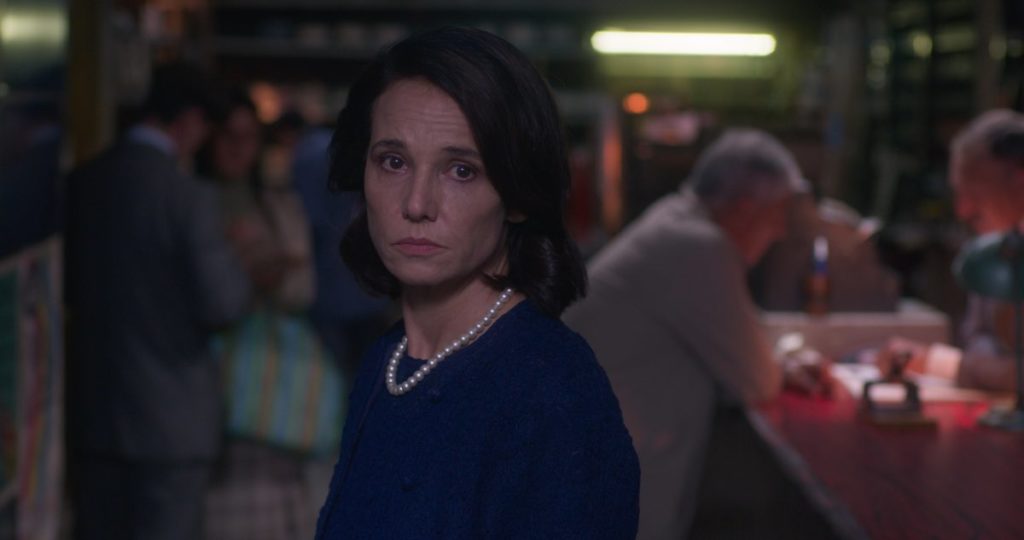
In Manuela Martelli’s chilling political thriller, a woman confronts her privilege gained from her family’s complicity in the Pinochet regime. Featuring a stunning lead performance by Aline Kuppenheim, this psychological portrait is about what happens when you stop pretending not to hear the whispers or see the covered-up atrocities and how scary it can be to try to make things better.
Here’s an excerpt from Lindsay Pugh’s Cannes Review:
“Manuela Martelli’s debut feature, 1976, is a film defined by a perpetual state of anxiety fueled by government and gender oppression. In the coastal Chilean town of Las Cruces during the third year of Pinochet’s dictatorship, a middle-aged woman named Carmen (Aline Kuppenheim) is busy renovating her family’s beach house. When a local priest, Father Sanchez (Hugo Medina), persuades her into caring for Elías (Nicolás Sepúlveda), a “common criminal” with a gunshot wound, she is unwittingly thrown into a dangerous situation that aligns her with the opposition movement. As time passes and she becomes aware that Elías is actually on the run from Pinochet’s police force, she experiences a quiet revolution as her own life begins to change.”
Read Lindsay Pugh’s review of Chile ’76 here
Now on Kanopy in Canada/US and VOD in Canada/US/UK.
17. Pacifiction (Albert Serra, France & French Polynesia & Germany & more)
Premiered at the 2022 Cannes Film Festival in Competition.
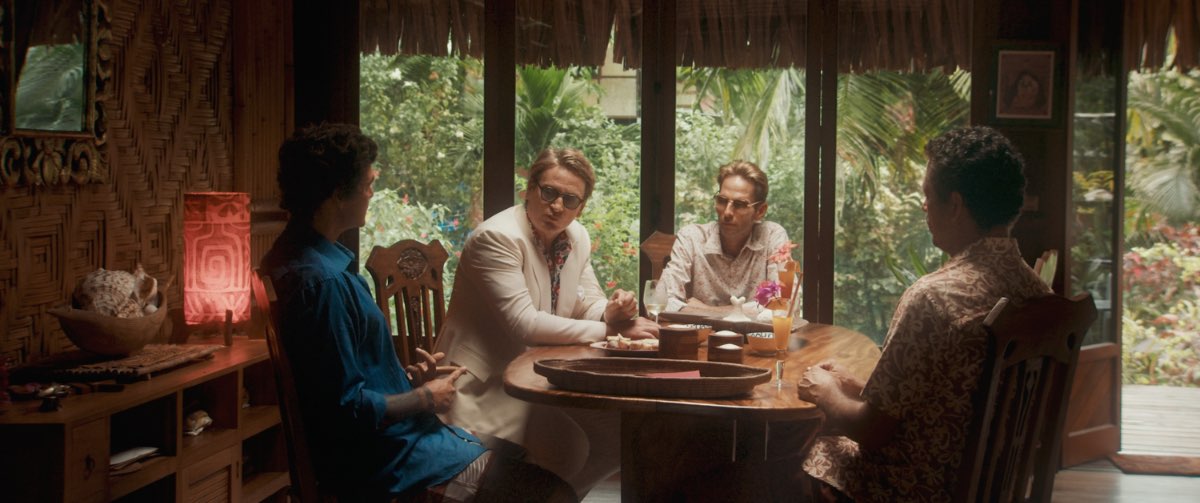
With a languorous pace and a run-time of nigh three hours, Albert Serra’s Pacifiction is a spellbinding, if daunting, experience. Set in Tahiti, the film follows High Commissioner De Roller (Benoît Magimel) through his quotidian duties. We watch him repeatedly ease tensions among the island’s population, suggesting he’s an effective diplomat. Yet it’s an open question for us and him as to whether his colonial post should exist.
Narratively, his position gives us unparalleled access to the many communities on the island. He strikes up a romance with an Indigenous trans woman, Shannah (Pahoa Mahaganafanau), meets with settlers and Indigenous leaders, and pretends to oversee the island. Truthfully, he has no idea what is happening in the territory he purportedly governs. Men from the navy turn up in uncommonly high numbers at the local nightclub, the one place where the working class meets the upper class, and settlers mingle with Indigenous people. There are rumours they’re using the island for nuclear testing. But nobody will give De Roller a straight answer.
For its pacing, colonial critique, and attention to the sounds and images of the land, Pacifiction recalls Lucrecia Martel’s Zama. Tonally, though, it feels more like an Apichatpong Weerasethakul film, as the film slowly transforms into a heat-fueled fever dream. Magimel, who has been quietly giving scene-stealing supporting performances in films like An Easy Girl and Revoir Paris, finally gets a meaty leading role to sink his teeth into. Appearing in almost every scene, Magimel keeps us constantly questioning this man’s motives in one of the year’s very best performances. Is he concerned for the population or mostly just trying to hold onto what little power he still has?
Now on VOD and Mubi in Canada/US.
16. Menus-Plaisirs Les Troigros (Frederick Wiseman, France/USA)
Premiered at the 2023 Venice Film Festival in the Out of Competition section.
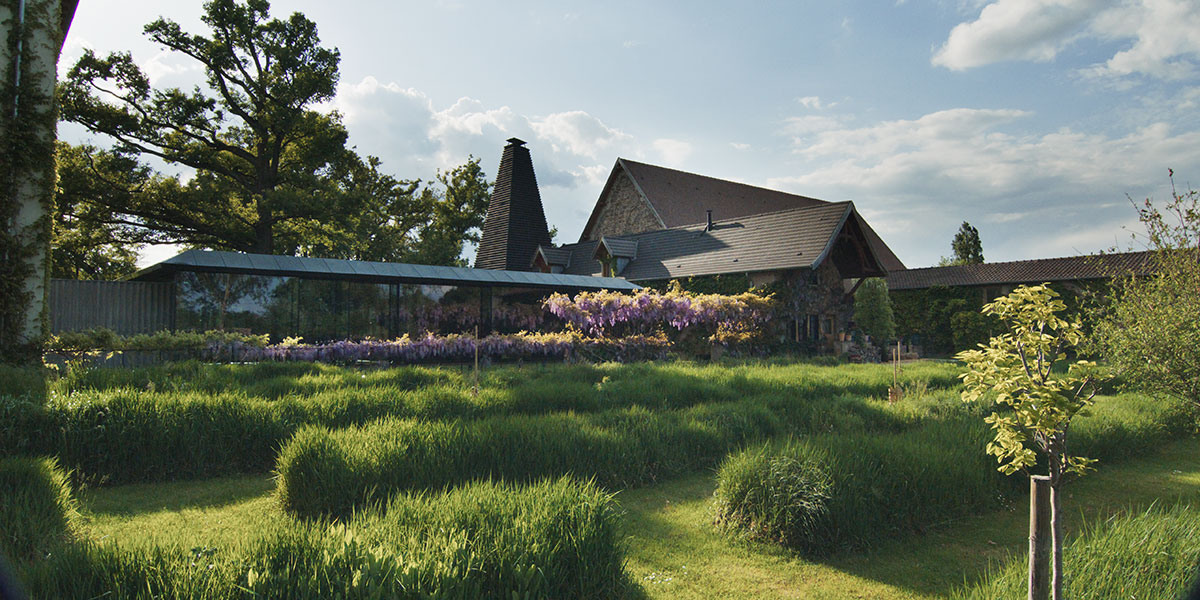
At 93, Frederick Wiseman’s films are still a significant event. Though he spent the first few decades of his career primarily tackling broken social institutions — from Welfare to Hospital to High School and beyond — he has increasingly looked at cultural institutions that do work well in the last 15ish years. Menus-Plaisirs les Troisgrois is a film about the Michelin-star restaurants owned and operated by the Troisgros family for decades. Though not a foodie myself, I enjoyed much about the film, partly because crafting the meals and dealing with the audience is a crucial part of the Troisgros business.
The luxury dining experience means that the chefs are as attentive to how the food is produced and how the meal is made as Wiseman’s films are to process. For the Troisgrois family, the process is part of the experience. This makes Wiseman’s methods a perfect match for the material. The film follows the former head chef and his sons, now running (mostly but not entirely yet autonomously) two of the restaurants as they design their menus, seek out food and wine from producers, prepare the meals, and interact with the patrons, including educating them on the process. The film is also about the Troisgros family and the challenges of modernity, how the restaurants have changed over time, and how the patriarch struggles to pass on the business to his sons.
Menus-Plaisirs is playing select theatrical dates across the US and Canada.
Read our dossier of Frederick Wiseman interviews from across the 2010s in our ebook In Their Own Words: Documentary Masters Vol. 1.
15. Rewind & Play (Alain Gomis, France)
Premiered at the Berlinale in 2022 in the Forum section.
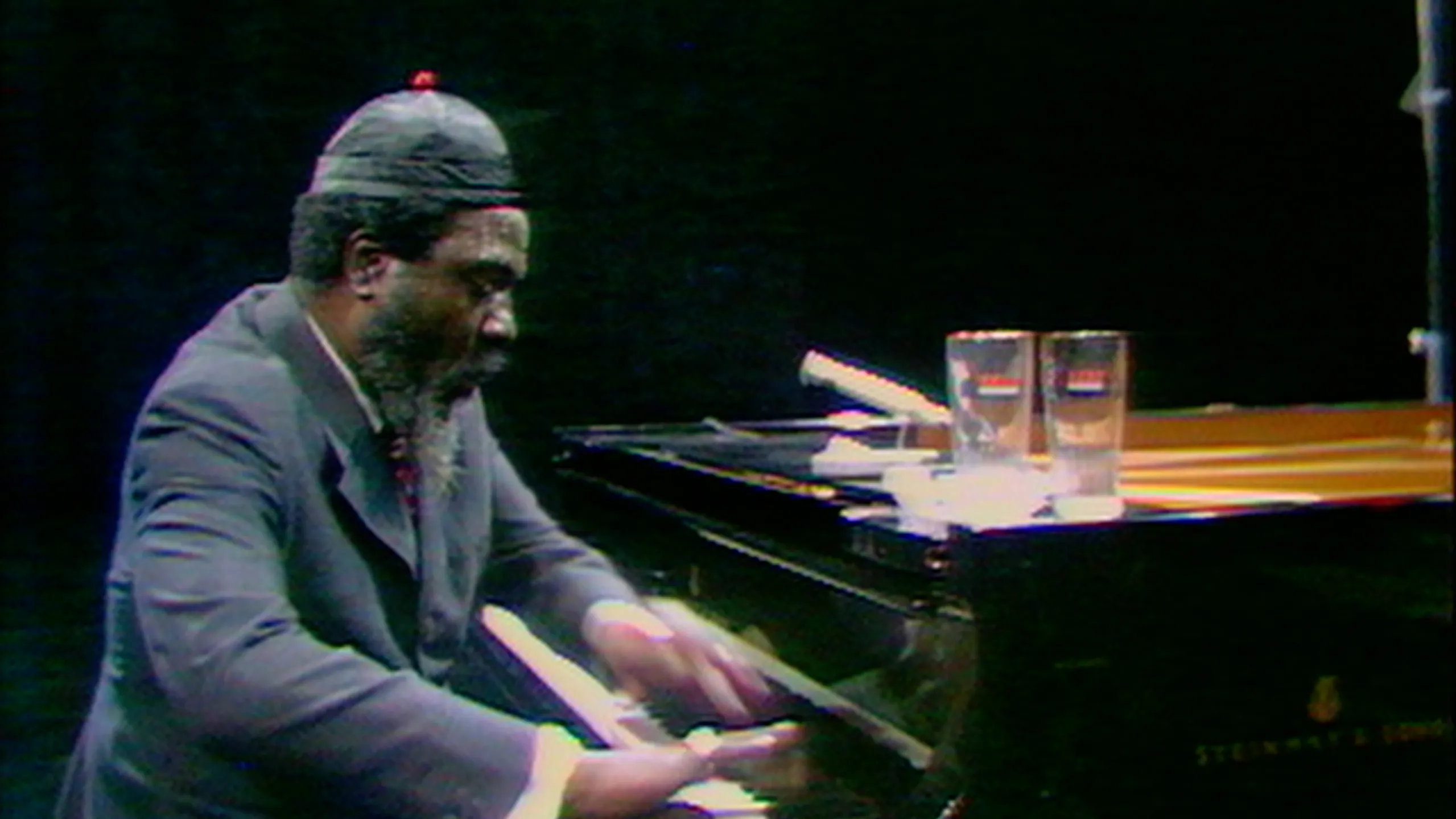
In Rewind & Play, Alain Gomis re-edits an interview jazz pianist Thelonius Monk gave on French TV in the 1960s to expose the sneering racism of the host. I first saw this at the Berlinale in 2022 and thought it was a smart way of recontextualizing archival footage and a lovely excuse to watch the legendary jazz pianist play. It’s been almost two years since I first saw it, and I keep thinking more and more about it. Watching this short documentary feature, barely over an hour, you’ll find yourself rewinding and playing it in your mind for months. It’s creative nonfiction documentary at its best.
Rewind & Play is streaming on Mubi Canada/US/France/Germany. It’s also on VOD in the US.
Discover more great works of creative nonfiction film with our ebook Subjective Realities: The Art of Creative Nonfiction Film.
14. The Adults (Dustin Guy Defa, USA)
Premiered at the Berlinale 2023 in the Encounters section.
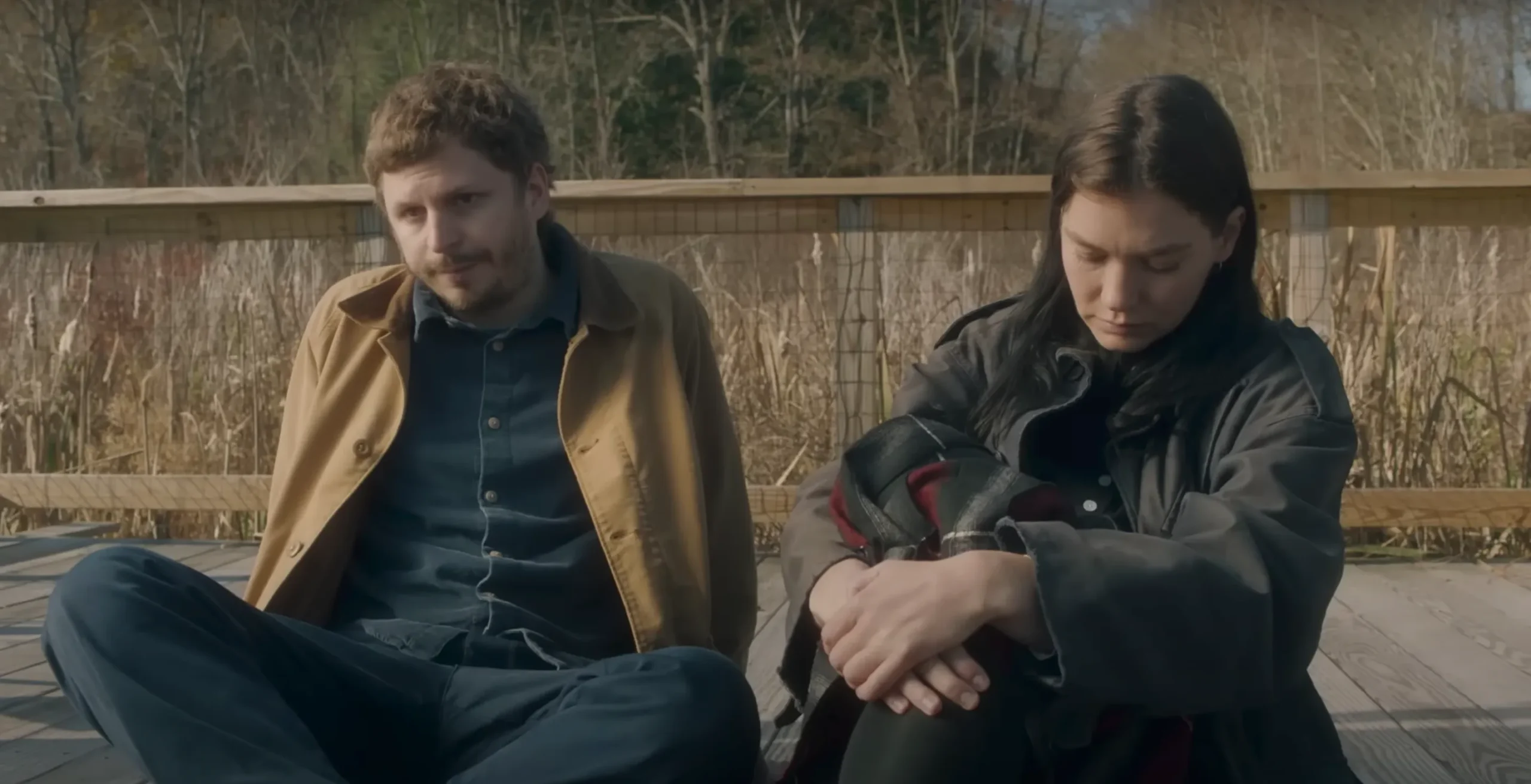
The Adults was one of the best surprises of 2023: an indie-spirited film somehow sponsored by a studio, with three of the best performances of the year (Michael Cera, Hannah Gross, and Sophia Lillis). It’s about three somewhat estranged adult siblings who spend a weekend together reverting to childhood games, hiding from each other, and still finding solace in the only people who shared their childhood, even if they don’t like each other much anymore. I didn’t care much for Dustin Guy Defa’s Person to Person, but I loved this entirely character-driven chamber drama. Plus, it has a great dance scene.
Michael Cera stars as Eric, who returns to his hometown in Upstate New York after spending years avoiding it: he left for college and didn’t look back. His parents have passed away, and his older sister Rachel (Hannah Gross) lives in their house, while his younger sister Maggie (Sophia Lillis) has recently dropped out of college and is floundering. Eric spends the film finding any excuse to avoid spending time with his siblings who desperately want his attention, especially Maggie, and, in Rachel’s case, to chastise him for abandoning them. Their interactions are awkward and painful, but the cast makes them feel lived in and real. It’s the rare film that understands the strange logic of families, their magnetic pull, and the (sometimes misguided) desire to leave them behind.
Now on VOD in Canada/US/UK/AU/NZ/Ireland and streaming on Prime in Canada.
13. Rotting in the Sun (Sebastián Silva, Mexico)
Premiered at Sundance 2023 in the Premieres section.
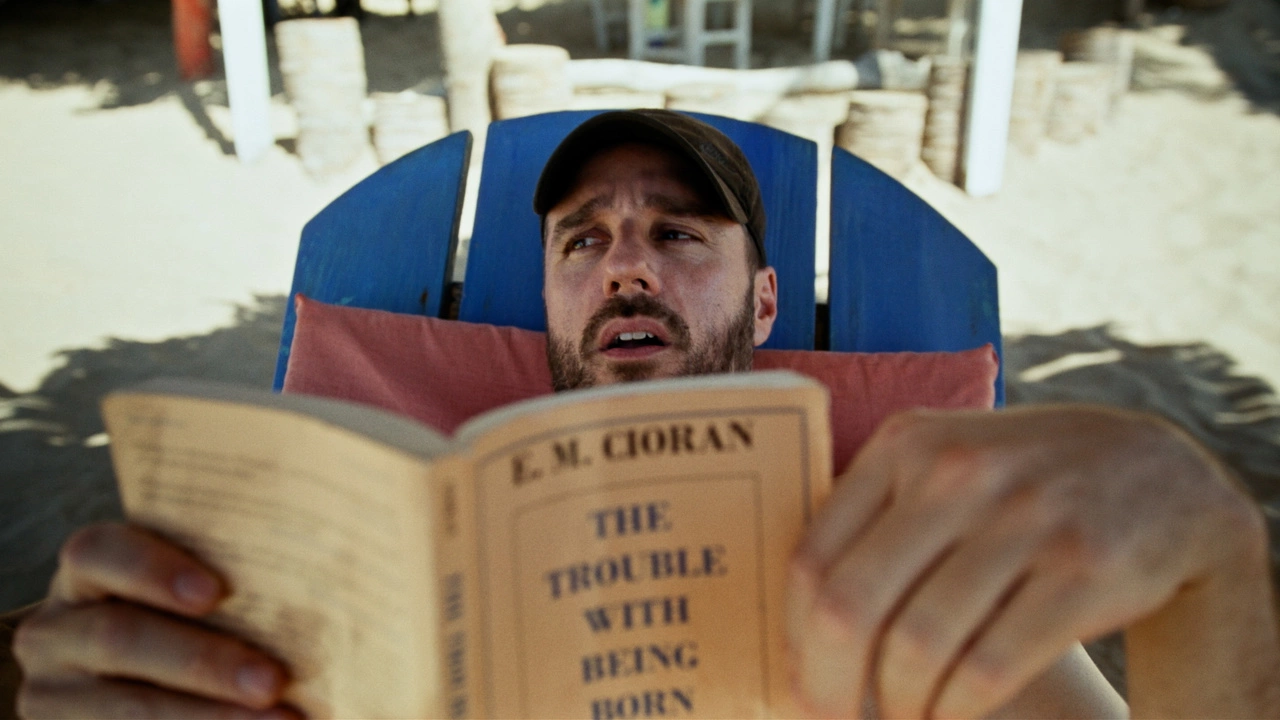
By far the funniest film of 2023, Sebastián Silva’s existential crisis movie involves phenobarbitol, a depressing (slash hilarious?) amount of aggressively in-your-face penises at a gay beach, and a lament that the best art rarely pays. Silva stars as himself, a starving artist hanging out in his friend’s empty apartment in Mexico City where a maid (Catalina Saavedra, who played the titular maid in Silva’s debut film) waits on him hand and foot. He constantly jokes about killing himself with Phenobarbitol. He is also extremely online. The film is one of the best I’ve seen to consistently evoke how our thought patterns these days are intrinsically linked to our engagement with our phones.
When Sebastián takes a vacation to a gay beach, he meets Jordan Firstman (playing an incredibly annoying version of himself). He soon discovers that the only way to get HBO to give him money is to collaborate with Firstman. But halfway through the film, Silva (the film’s best asset) disappears, leaving it to Firstman to discover what happened. Several scenes are so funny that you’ll immediately want to rewind and rewatch them.
Listen to our podcast discussion on Rotting in the Sun
Read our interview with Sebastián Silva on his film Magic Magic
Rotting in the Sun is on Mubi in Canada/US/UK and many other countries.
12. Stellar (Darlene Naponse, Canada)
Premiered at TIFF in 2022 in the Contemporary World Cinema section.
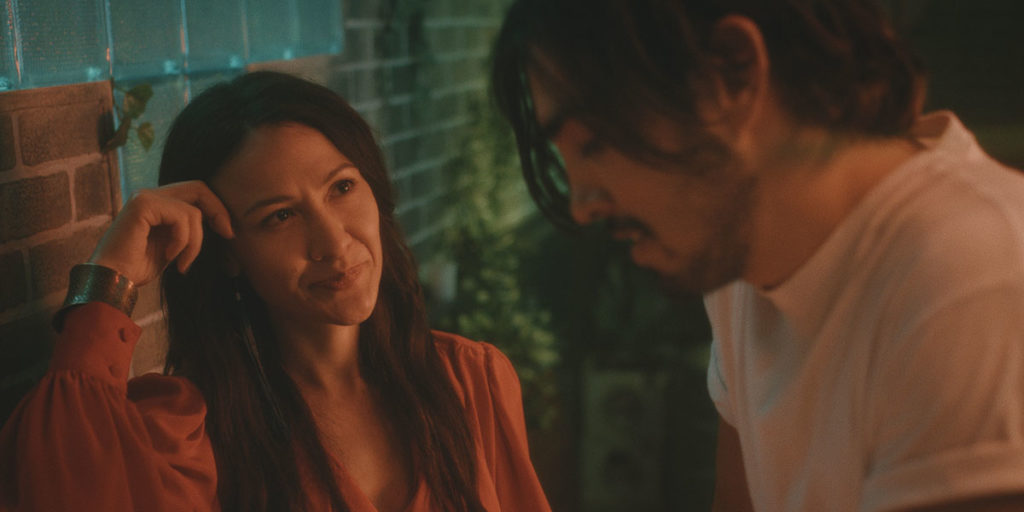
Stellar is a gorgeous, entrancing love story and a wonderful sensory experience. It takes place at what might be the end of the world, where everyone is panicking except the film’s two Indigenous leads, Him (Braeden Clarke, Run Woman Run) and Her (Elle-Máijá Tailfeathers Elle-MáijaTailfeathers of Night Raiders, The Body Remembers When the World Broken Open). Stellar is the rare Indigenous film that doesn’t cater to settlers. Instead, it asks us to get on its wavelength. I did. It’s a singular film unlike anything else I’ve seen.
Stellar is streaming on Crave in Canada and is available on VOD.
11. 32 Sounds (Sam Green, USA)
Premiered with a live virtual screening at the 2022 Sundance Film Festival in the New Frontiers section, and is now in US cinemas. It’s also touring the world with live screenings.
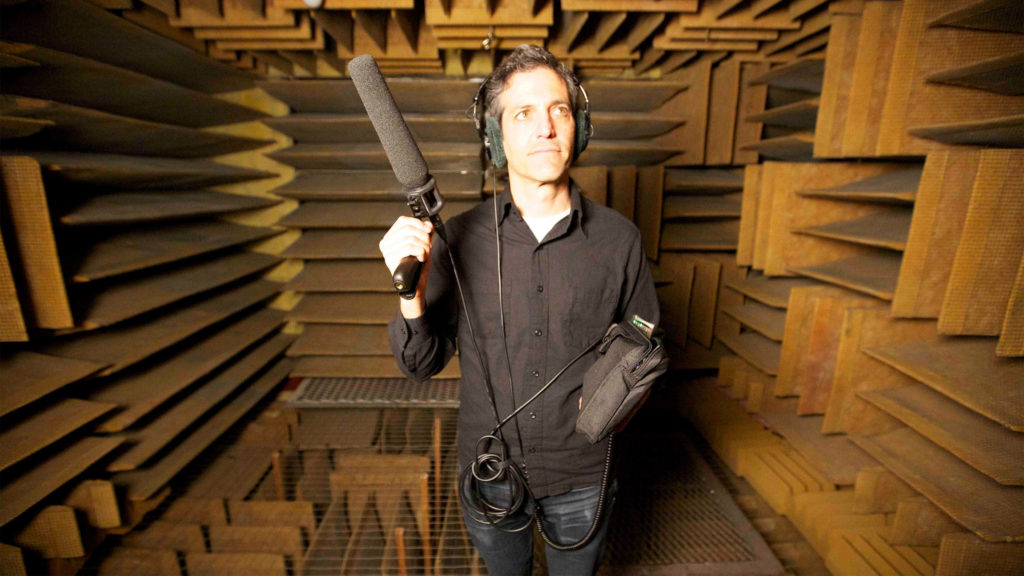
Here’s an excerpt from the intro to my interview with Sam Green about the film:
“Green’s newest live documentary, 32 Sounds, is an exploration of the many ways we engage with sound, especially emotionally. It world premiered virtually at Sundance in January and will be rolling out to venues around the world this year. Unlike Green’s previous work, the film is designed for both an at-home audience wearing headphones, and a live audience. Live audiences experience live narration and live music performed by singer-guitarist JD Samson. Just as musicians record albums and still play live shows, 32 Sounds creates complementary experiences for both live and at-home audiences.
It asks us to consider the sounds we encounter all the time and don’t notice, the sounds that mark our memories, and how we create sound. Its vignette structure was loosely inspired by 32 Short Films About Glenn Gould (François Girard, 1993). 32 Sounds certainly contains more than thirty-two sounds, though the selected ones are occasionally tallied for us. It is alternately lighthearted — explaining sound waves with a whoopie cushion — and deeply contemplative, as when Green dreads listening to the answering machine recordings left by his late brother.”
Read the interview with Sam Green
32 Sounds is still doing one-off live and theatrical screenings across North America, and will eventually be available on VOD.
More on 32 Sounds, one of the best films of 2023
Listen to the interview with Sam Green on the Creative Nonfiction Podcast season
We explore live documentaries in the ebook Subjective Realities: The Art of Creative Nonfiction Film. The book includes an interview with Green’s co-director on A Thousand Thoughts, Joe Bini.

Download the first two ebook chapters FREE!
Explore the spectrum between fiction and nonfiction in documentary filmmaking through films and filmmakers pushing the boundaries of nonfiction film.
10. Revoir Paris (AKA Paris Memories) (Alice Winocour, France)
Premiered in the 2022 Cannes Directors’ Fortnight.
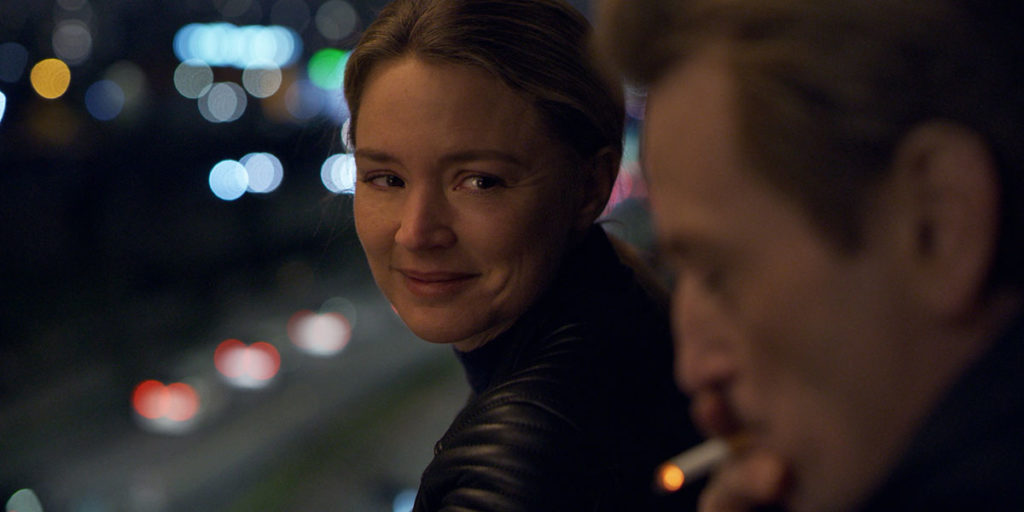
Here’s an excerpt from my Quick Thoughts review of Revoir Paris:
“With Paris Memories, Alice Winocour continues her exploration of traumatized bodies and PTSD that has defined all of her films to date: Augustine (2012), Disorder (2015), and Proxima (2019). Loosely based on Winocour’s brother’s experience with surviving a mass shooting, Paris Memories is the story of Mia’s (Virginie Efira) recovery from such an event. The trauma and the survivor’s guilt hollows Mia out, pushing her to flee her life with her somewhat indifferent partner, Vincent (Grégoire Colin), who can’t understand what she’s going through.
Instead, she finds herself drawn back to the restaurant where the shooting happened, where she meets with her fellow survivors to try to piece back together her memories so she can cope with them. The film follows Mia through all the stages of grief, and then widens the scope to her fellow survivors to paint a portrait of an unexpected and traumatized community.”
Read our interview with Alice Winocour on Revoir Paris
Explore all of Seventh Row’s coverage on Alice Winocour
Revoir Paris is now on VOD in Canada/US/UK.
9. Full Time (Éric Gravel, France)
Premiered at the 2021 Venice Film Festival in the Orizzonti section. At Venice, it won Best Director and Best Actress for Laure Calamy.
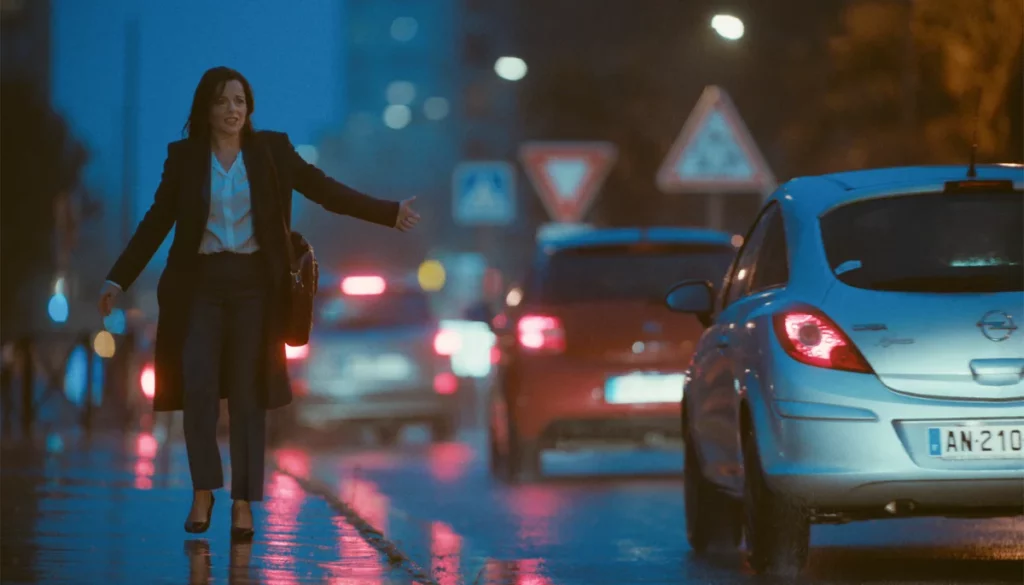
Here’s an excerpt from my review:
“In Full Time, writer-director Éric Gravel transforms a week in the life of a working mother into a heart-pounding thriller. The film puts us in her stressed, subjective headspace. Laure Calamy (Sybil; My Donkey, My Lover, and I; Call My Agent) stars as Julie, a single mother of two. She lives in the suburbs and commutes to Paris to work as head chambermaid at a five-star hotel. Over the course of the week we spend with her, everything that could go wrong does go wrong. A nationwide strike means public transit grinds to a complete halt, threatening her commute. Her latest attempt to land a job that fits her puts her in danger of losing her current one. Her nanny quits. She has to host her son’s birthday party that weekend. And her ex is late with his alimony payment, putting her in overdraft.”
Full Time is now on VOD in Canada, US, and UK. The film will stream on Mubi US starting March 8. There is a beautiful limited-release Blu-ray available from Music Box on the Vinegar Syndrome website.
8. Our Body (Claire Simon, France)
Premiered at the 2023 Berlinale.
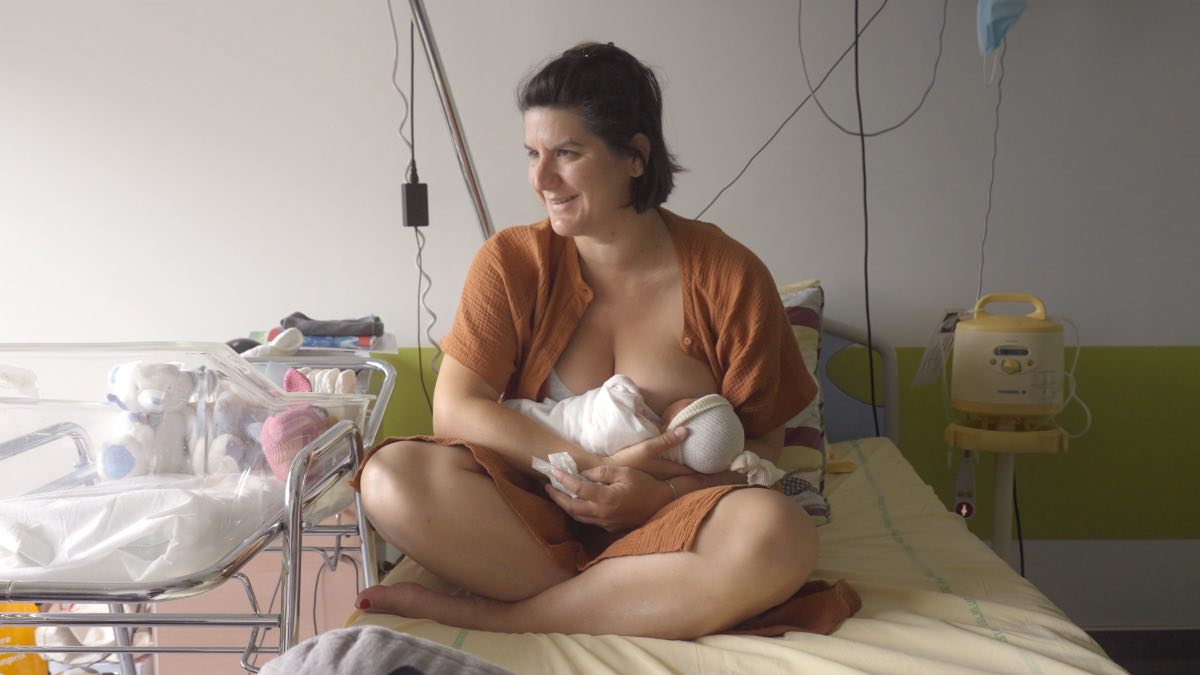
Claire Simon’s three-hour documentary Our Body invites us into private consultations and conversations between doctors and patients in the gynecological ward of a Parisian public hospital. The film begins with conception — abortion and infertility — and ends with the challenges of end-of-life care. The film is a groundbreaking work, putting women’s health and bodies on screen with compassion to educate and destigmatize how we treat them. It’s a hugely feminist act.
Except for the film’s opening and closing, which track Simon entering and exiting the hospital and one brief protest, we never actually leave the hospital. Instead, we stay in these intimate spaces that are rarely spoken of in life, let alone documented on film, and become aware of all the critical life-changing events that happen when seeking medical care and how women, especially, are conditioned to keep these a secret. Patients worry about how they will get time off work for their treatments, while the doctors urge them that they have no choice; easier said than done when your livelihood is at stake. At the same time, doctors work hard to create safe spaces, especially for patients seeking care that may come with stigmas, as most healthcare for women does, like hormone treatment for body dysmorphia.
The film’s length, largely observational approach, and focus on an institution invite lazy comparisons to Wiseman’s films. Simon’s film is as engaging throughout its runtime, if less humourous, than a Wiseman film, and perhaps less angry. But Simon’s work is entirely patient-focused and humanistic, focused on revealing what happens behind closed doors where we deal with women’s health. Wiseman’s version would have been as interested in how the hospital ticks — staff meetings, budgetary concerns, support staff — as in patient interactions, as in his film Hospital, and how specific interactions with patients speak to broader issues with the healthcare system, including how class and race impact your experience.
Simon unexpectedly ends up a subject in her film when she discovers she has cancer and requires treatment, which she captures on screen. We spend time with Simon not only in the patient room but anxiously waiting for her appointment and results; because she’s filming herself, we get a fuller picture of how scary her diagnosis is and how much solace being able to get treatment provides.
Our Body will soon be released on VOD in Canada and the US. It has finished, to my knowledge, its theatrical run. Our Body will stream on Criterion Channel in Canada and the US starting March 1.
7. Four Quartets (Sophie Fiennes, UK)
Premiered on the BBC in 2022.
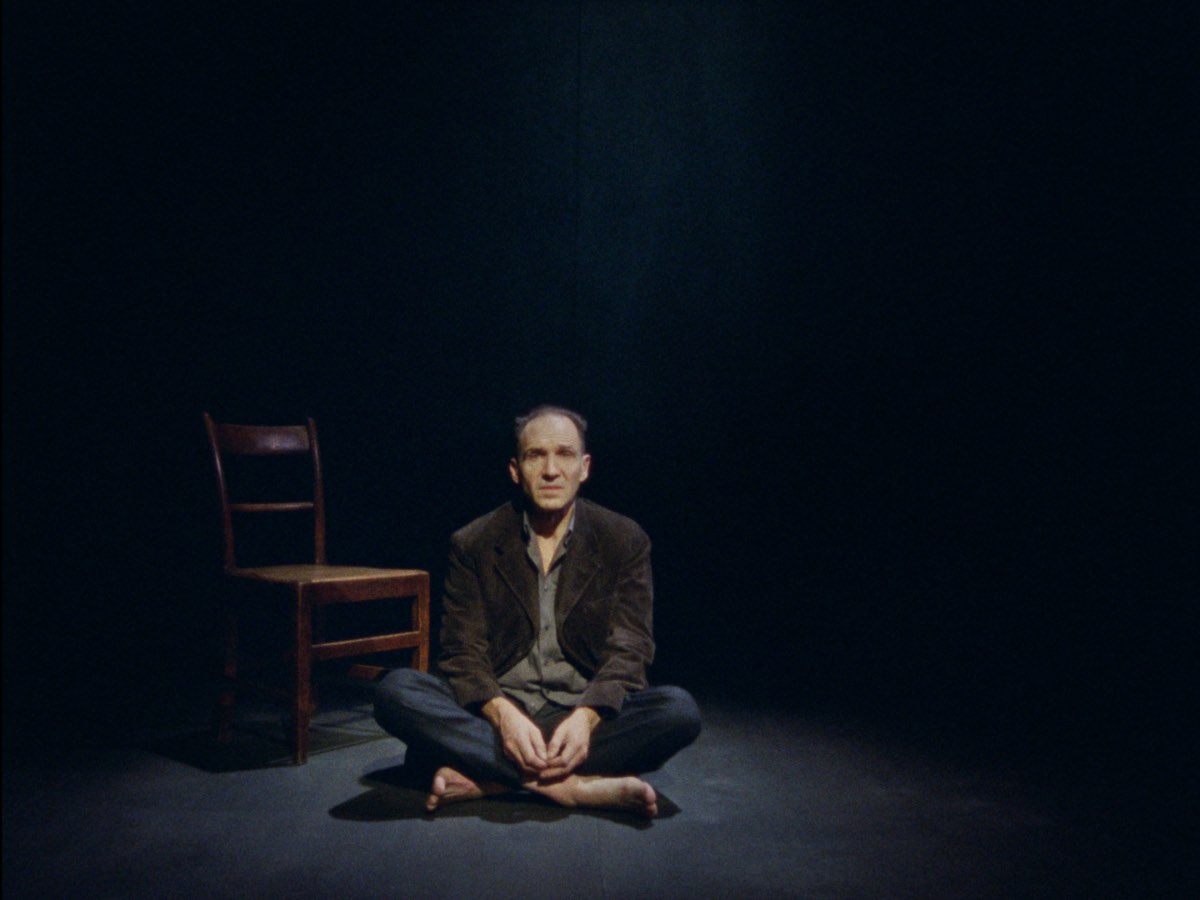
Sophie Fiennes’s documentary Four Quartets captures the stage play of the same name. The play was directed by and starring her brother Ralph Fiennes. For the production, Ralph Fiennes adapted the T.S. Eliot poem into a play he toured around the UK in 2021.
Four Quartets is neither live theatre capture nor a full adaptation of the play. Instead, Fiennes remarkably documents the theatre production on screen, maintaining all the original lighting and blocking. Her choices of framing and camera movement really put us in the black box theatre with Ralph Fiennes. Because Sophie Fiennes gives us a sense of the theatrical space in her clever use of cinematic space (framing), the translation to the screen doesn’t feel like one of information loss. If Fiennes leaves the frame, we know what we’re missing.
The film provides the intimacy of a black box theatre experience without the visual bore of most recorded theatre. Fiennes edits with a propulsive but measured rhythm to keep us constantly in the moment. Her shot choices are not merely about offering variety but bringing us the right visual for each moment of the text and performance. By working so closely with her brother to understand the production, Fiennes brings us an authentic theatrical experience in a medium that isn’t ephemeral.
Listen to the interview with Sophie Fiennes on Four Quartets
Four Quartets is streaming free on the BBC in UK. It’s also available on VOD and Kanopy in the US/Canada.

Download the first two ebook chapters FREE!
Explore the spectrum between fiction and nonfiction in documentary filmmaking through films and filmmakers pushing the boundaries of nonfiction film.
6. The Strange Case of Dr. Jekyll and Mr. Hyde (Hope Dickson Leech, UK)
Premiered as a finished film at the Edinburgh Film Festival in 2023.
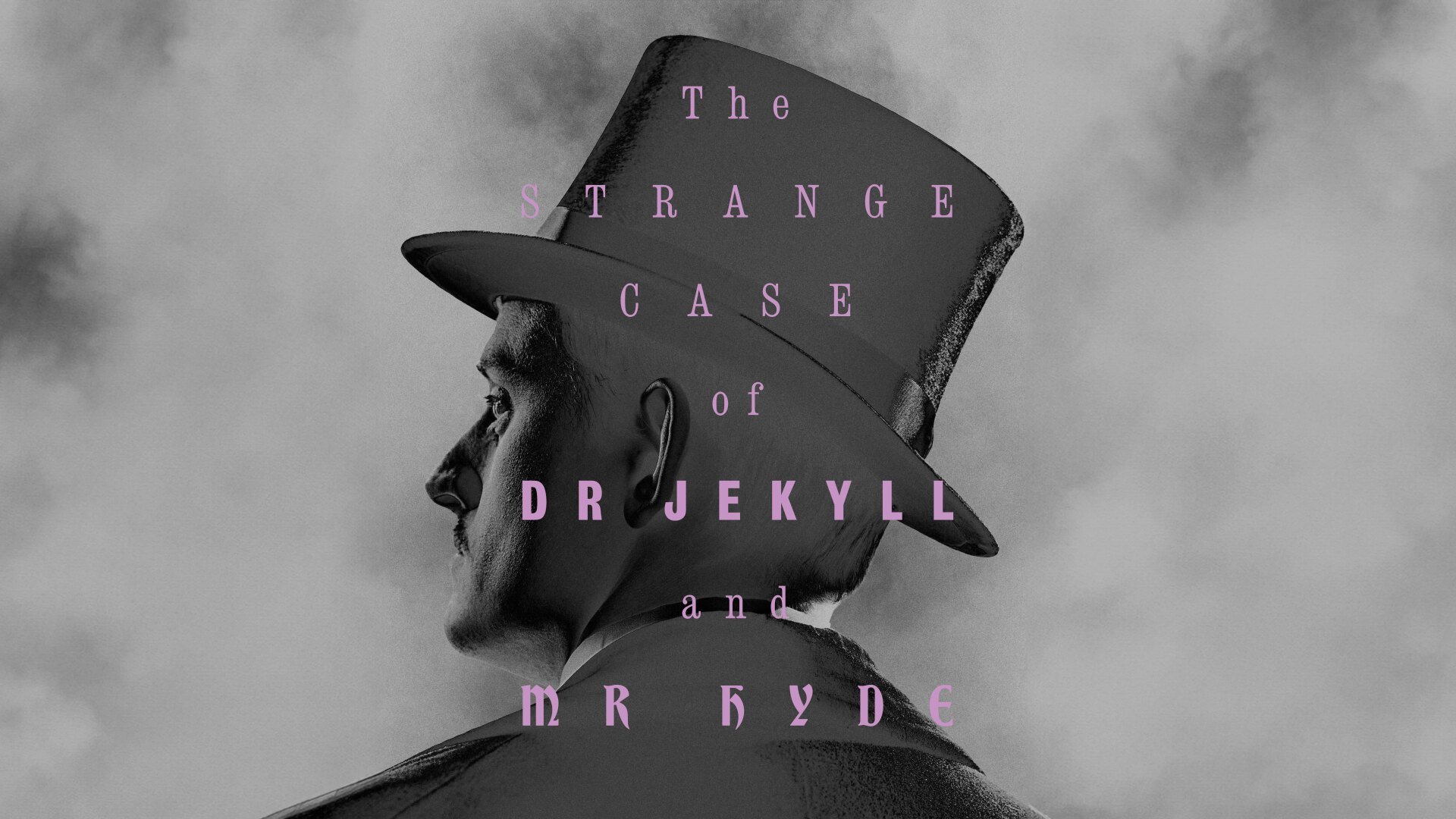
Hope Dickson Leech’s The Strange Case of Dr. Jekyll and Mr. Hyde is one of the most inventive, successful, and visually stunning films of the year, a landmark work of hybrid filmed theatre or film as theatre storytelling. As initially conceived for the National Theatre of Scotland, The Strange Case of Dr. Jekyll and Mr Hyde was designed for a live audience gathered around a movie screen. They watched a live-edited film performed in the building’s other rooms. The cameras were set up on sticks, and Dickson Leech directed and edited from a van outside. The sets are relatively bare, and some recorded footage shot on location is spliced throughout the film. The performances are captured live with just one take for each live performance. But the final product was a film.
The film The Strange Case of Dr. Jekyll and Mr. Hyde is a carefully curated mix of all the best footage from multiple nights of the show’s run. The performances are slightly stagier than you might expect on film. It’s more akin to the early days of cinema when many actors were plucked right from the stage. The sets are relatively sparse, but what Dickson Leech and her DP David Liddell do with them (and the locations)! I wanted to pause every frame to study the composition, light, shadows, and exquisite blocking.
Breathing new life into a classic story
The Strange Case of Dr. Jekyll and Mr. Hyde feels like something pulled out of the silent film era, though set a few decades before. Transporting the action of Robert Louis Stevenson’s London-set book to Edinburgh, where large sections of the city still look the way they did back then, is seamless. Dickson Leech is less interested in the story as pure horror — though the gothic elements are beautifully highlighted in the set, staging, and photography — and more in the class issues the story raises. Only by becoming very rich and influential can Dr. Jekyll split off his worst behaviour and instincts into a separate working-class identity that he need not take responsibility for.
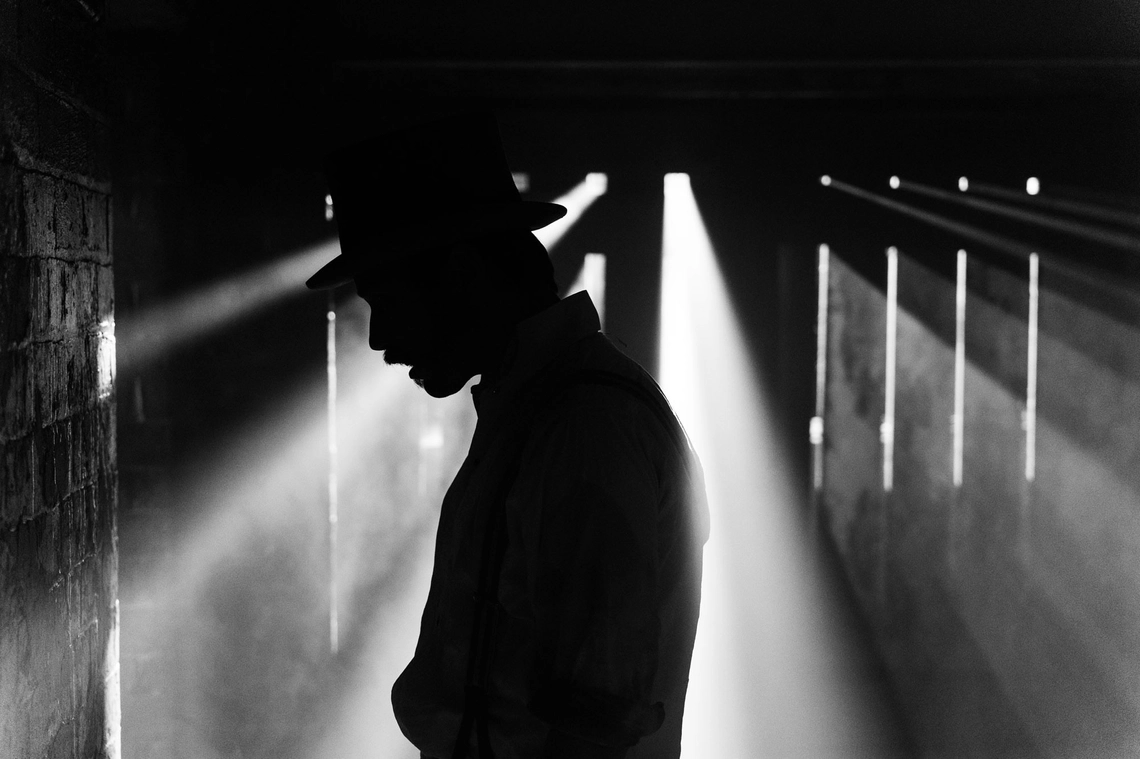
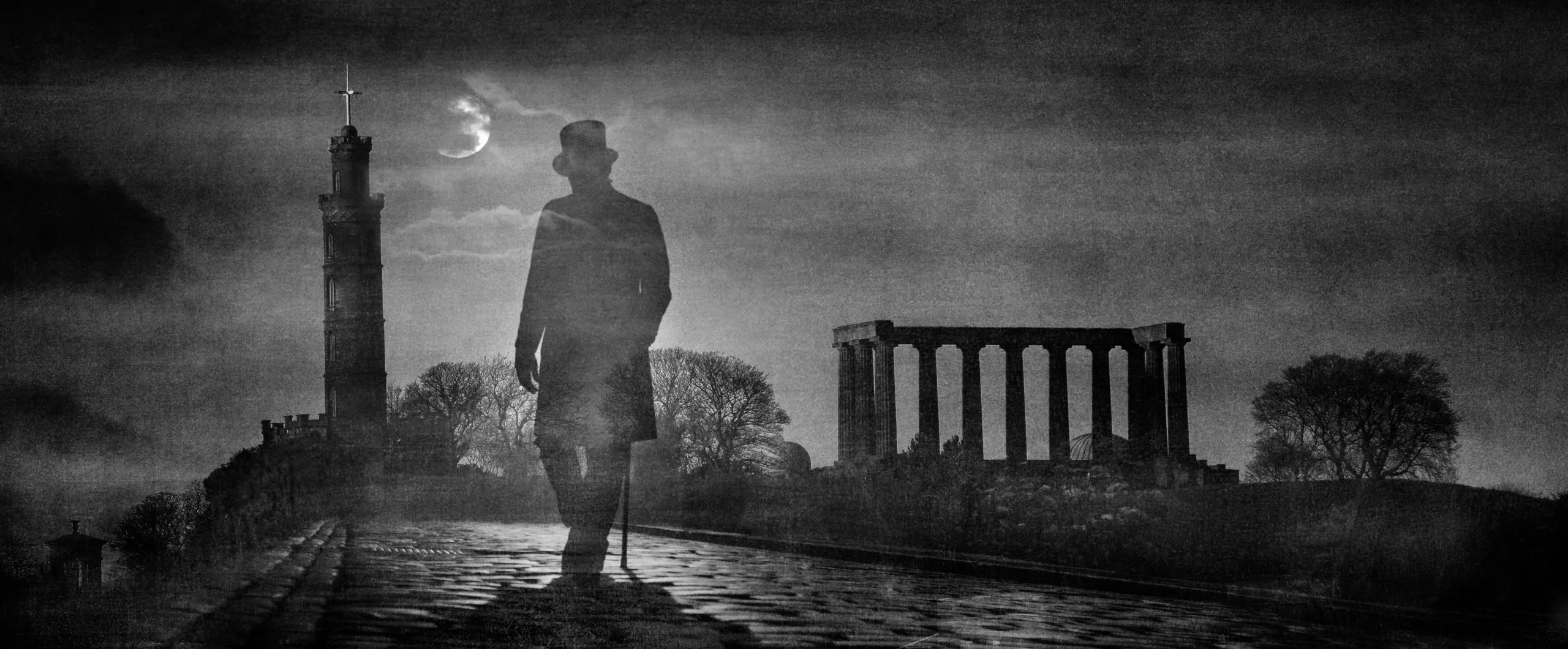
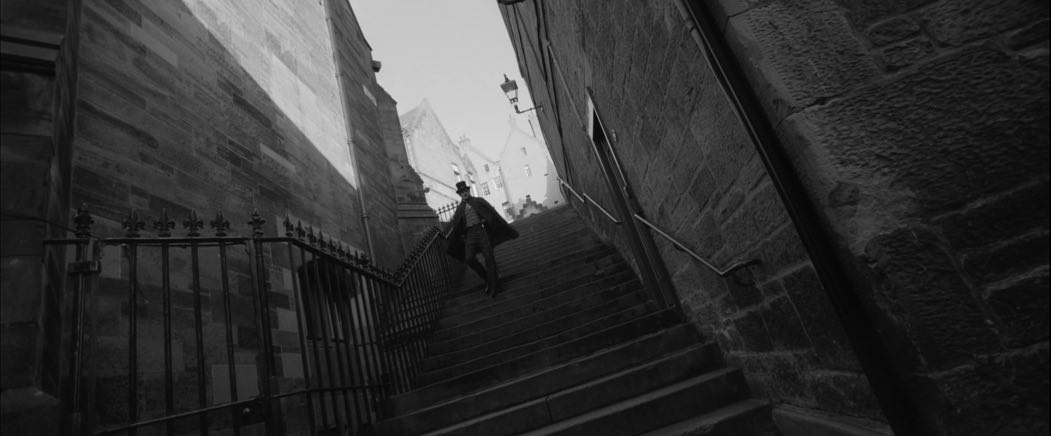
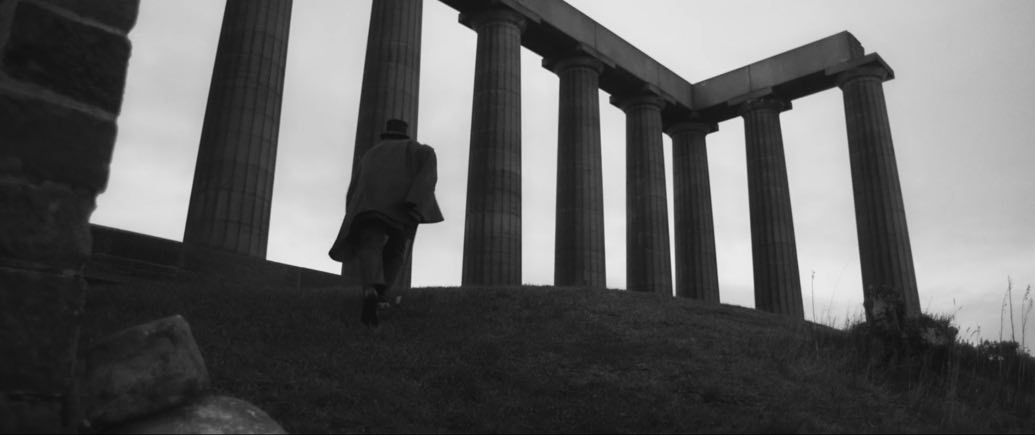
Like the book, the story centres around his lawyer, Utterson (an excellent Lorn Macdonald), trying to figure out who this mysterious Mr. Hyde is, who, along the way, gets opportunities he struggles to refuse, which would render him just as corrupt, if not directly murderous, as Mr. Jekyll.
The film breathes new life into a story I’d believed was not really for me and is one of the most visually stunning works of the year. Leech’s sophisticated and complex blocking can only be matched by Haigh’s, and I think they are probably equals here. What an incredible film.
Now streaming on SkyTV and NowTV in the UK. If it comes to your local film festival, SEE IT WHILE YOU CAN! Experimental projects like this, no matter how good, tend to disappear.
4. Showing Up (Kelly Reichardt, US)
Premiered in Competition at the 2022 Cannes Film Festival.
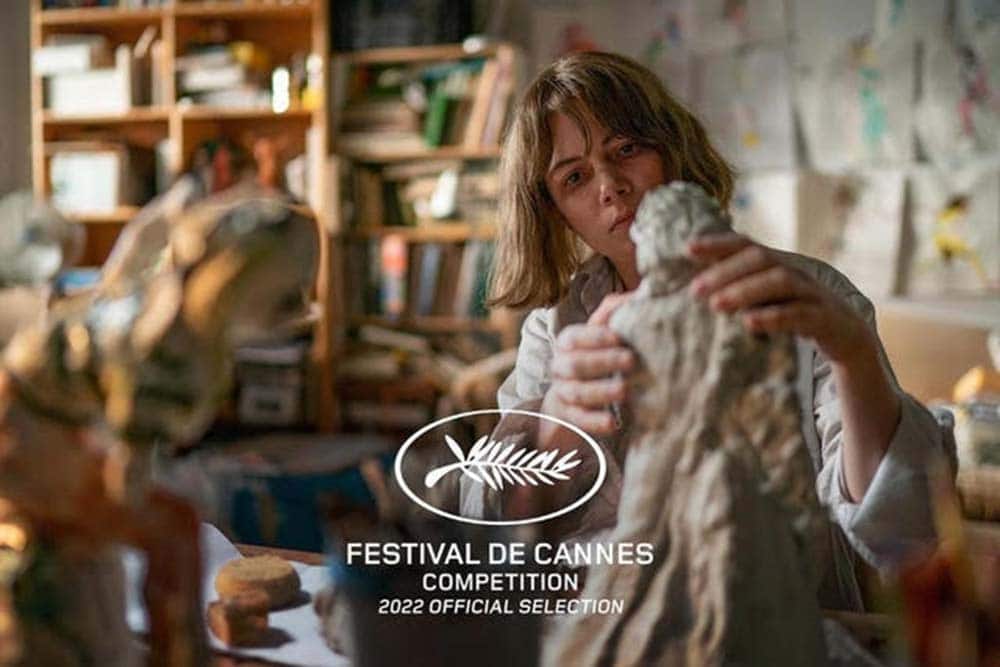
Here’s an excerpt from the intro to my interview with Kelly Reichardt on Showing Up:
“Things usually get done eventually. Just…not on time,” sculpturist Lizzy (Michelle Williams) reassures her frenemy Jo (Hong Chau), midway through Kelly Reichardt’s new film Showing Up. It could be the ethos of the film, which is about a lonely woman whose friends and family tend to come through for her, just often too late or not quite in the way that she wants. Splitting its time between Lizzy’s subjective headspace, in the stressful week leading up to her art show, and the artist community around her at the Portland art school where she works as an administrator, Showing Upis the closest Reichardt has come to a single-protagonist film since Wendy and Lucy (2008).
It’s à propos that Showing Up feels like the antithesis of Wendy and Lucy, which was a film about a woman and her dog on a road trip to nowhere. Michelle Williams stars in both, but while Wendy is alone in a cruel world where connection and solidarity are but fleeting (an idea explored brilliantly by Angelo Muredda in his Roads to nowhere essay), people are constantly showing up for Lizzy, though she’s never really sure if they will. That’s partly because she lives in a community of often feigned support. Everyone tells everyone that their art is great, so how do you know when people are lying to you?”
Read the interview with Kelly Reichardt
Showing Up is now on VOD in the US and Canada, and coming to the UK soon. It’s only available from the A24 store as a Blu-Ray which comes with $40+ shipping costs internationally.
Download a free excerpt from our Reichardt ebook
Roads to nowhere: Kelly Reichardt’s broken American dreams is an ebook that will take you on a journey through Reichardt’s filmography.
It’s also the only place you can find interviews with her and all her collaborators, which together reveal Reichardt’s filmmaking process like never before.
3. Plan 75 (Chie Hayakawa, Japan)
Premiered at the Cannes Film Festival in Un Certain Regard, where it received special mention for the Caméra d’Or. It was Japan’s 2022 Oscar’s entry for Best International Film.
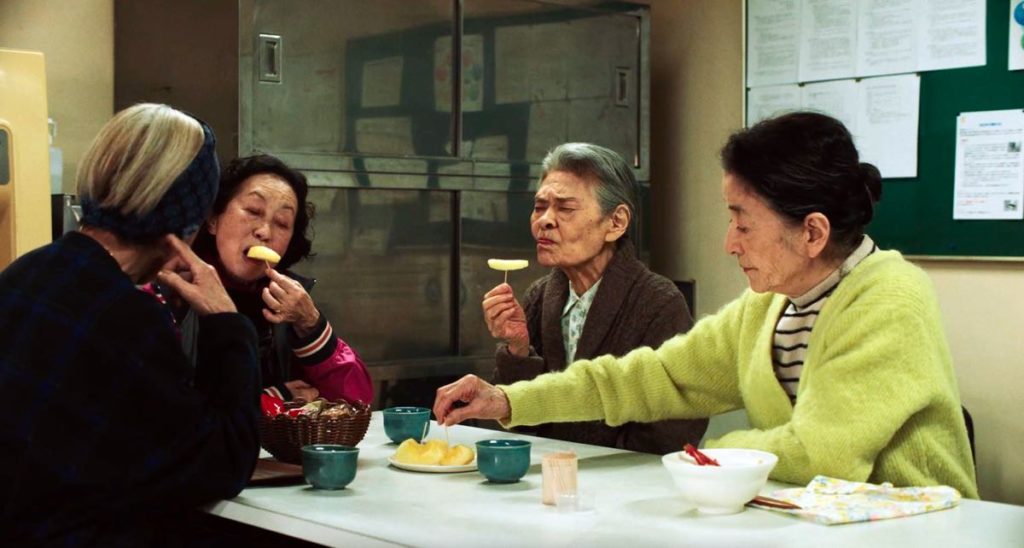
Here’s an excerpt from my Cannes review:
“Tender and devastatingly unsentimental, Chie Hayakawa’s feature debut, Plan 75, is a plea for empathy and a damning indictment of a world that more and more sees people as disposable. Set in a dystopian Japan where the government has made assisted dying accessible to anyone who is at least seventy-five years old through “Plan 75” — regardless of their medical conditions — the world of Plan 75 is depressingly close to the euthanasia programs already happening in the world.
In Canada, MAID means that if you can no longer afford to manage your chronic illness, the government will help you die rather than help you live; in 2023, that will include mental illnesses. During the COVID-19 pandemic, Sweden decided which elderly people with COVID would receive oxygen versus life-ending morphine based on whether or not they were non-disabled enough to live independently.”
Read my interview with writer-director Chie Hayakawa
Plan 75 is now on VOD in Canada/US/UK and Criterion Channel in Canada/US.
3. Other People’s Children (Rebecca Zlotowski, France), the best film of 2023 so far
Premiered in Competition at the 2022 Venice Film Festival.
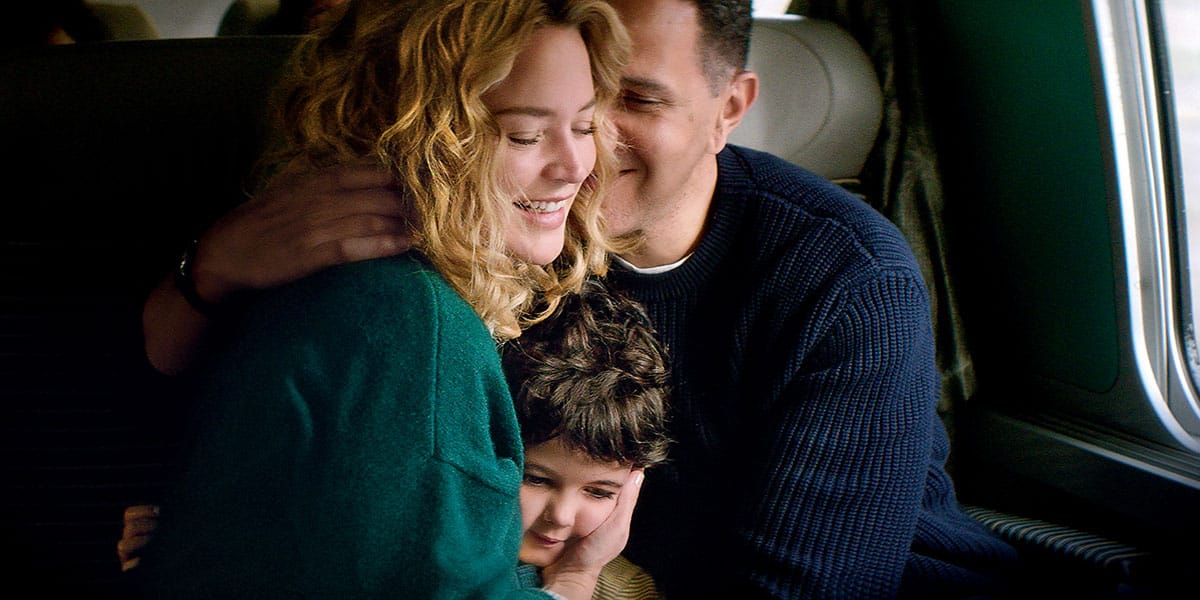
Here’s an excerpt from my review:
“Set over the course of a particularly important year, Rebecca Zlotowski’s Other People’s Children follows Rachel (a never better Virginie Efira), a teacher approaching forty. We watch as she navigates her many roles as a carer for children, all while her fertility window approaches its end. Rachel suddenly has a strong desire to be a mother, and jumps head-first into a romantic relationship with Ali (Roschdy Zem), possibly because she falls for his daughter, Leïla (Callie Ferreira-Goncalves)…
Other People’s Children is the latest film — in the vein of Mia Hansen-Løve’s Things to Come (2016), Justine Triet’s In Bed with Victoria (2016) and Sibyl (2019), Andrea Dorfman’s Spinster (2019), and Radha Blank’s The Forty-Year-Old Version — to tell a story of a middle-aged woman with lots of things going on in her life. All of these films share a similar grammar: lots of short scenes, packing the film dense with information, and unfolding at the speed at which the characters are experiencing their lives.”
Listen to the podcast discussion on Other People’s Children.
Stay tuned for in-depth interviews with director Rebecca Zlotowski and lead actress Virginie Efira.
Other People’s Children is now on VOD in Canada/US/UK and Mubi in the US.
2. The Eight Mountains (Felix van Groeningen & Charlotte Vandermeersch, Belgium & France & Italy & UK)
Premiered at the 2022 Cannes Film Festival in Competition, where it shared the Jury Prize with Jerzy Skolimowski’s Eo.
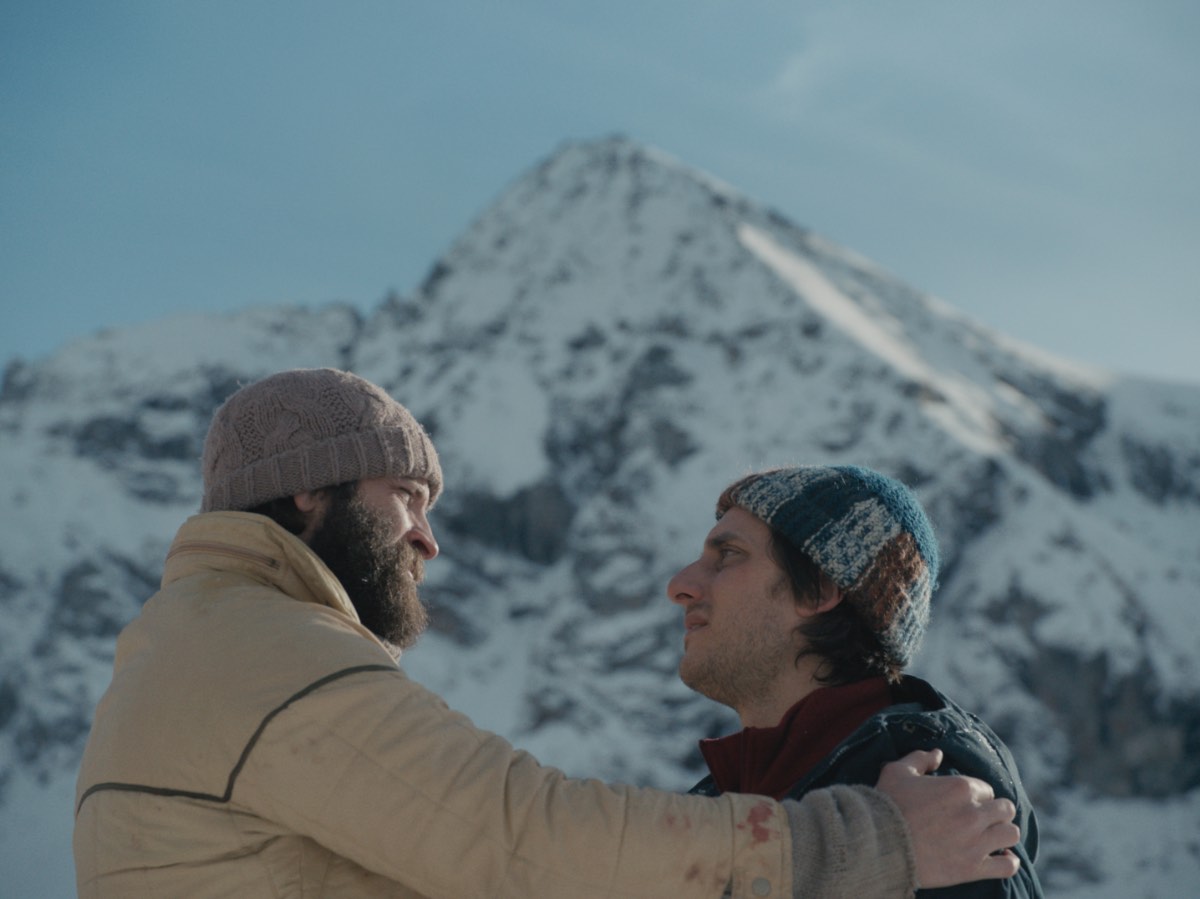
Here’s an excerpt of my review of the film:
“The Eight Mountains is an epic story of a friendship between two unlikely boys over decades. When local Bruno (played later by Alessandro Borghi) and city-dweller Pietro (as an adult, Luca Marinelli) are the only children in a small Italian town one summer, they become fast friends. Class differences and what those mean for growing up quickly tear them apart. A loss more than a decade later unexpectedly brings them back together. A piece of land ties them to each other for another decade. This intimate story feels sweeping in scope, thanks to the many wide shots of the characters against the awe-inspiring landscape.
Just as Daniel Norgren croons on the soundtrack about “time slip[ping] away,” Felix van Groenigen and Vandermeerch’s film is about the ebbs and flows of time and friendship. In one scene, the children part ways at the end of the summer. In the next cut, it’s summer again. One night, child Pietro storms up the stairs to his room. When we cut, he’s an adolescent who hasn’t spoken to Bruno in years. Fifteen years go by in a flash.”
Read my review of The Eight Mountains.
Listen to the podcast discussion on The Eight Mountains.
The Eight Mountains is on VOD and Criterion Channel in Canada/US. It is streaming on the BFI Player and on VOD in the UK.
1. All of Us Strangers (Andrew Haigh, UK)
Premiered at the Telluride Film Festival in 2023.
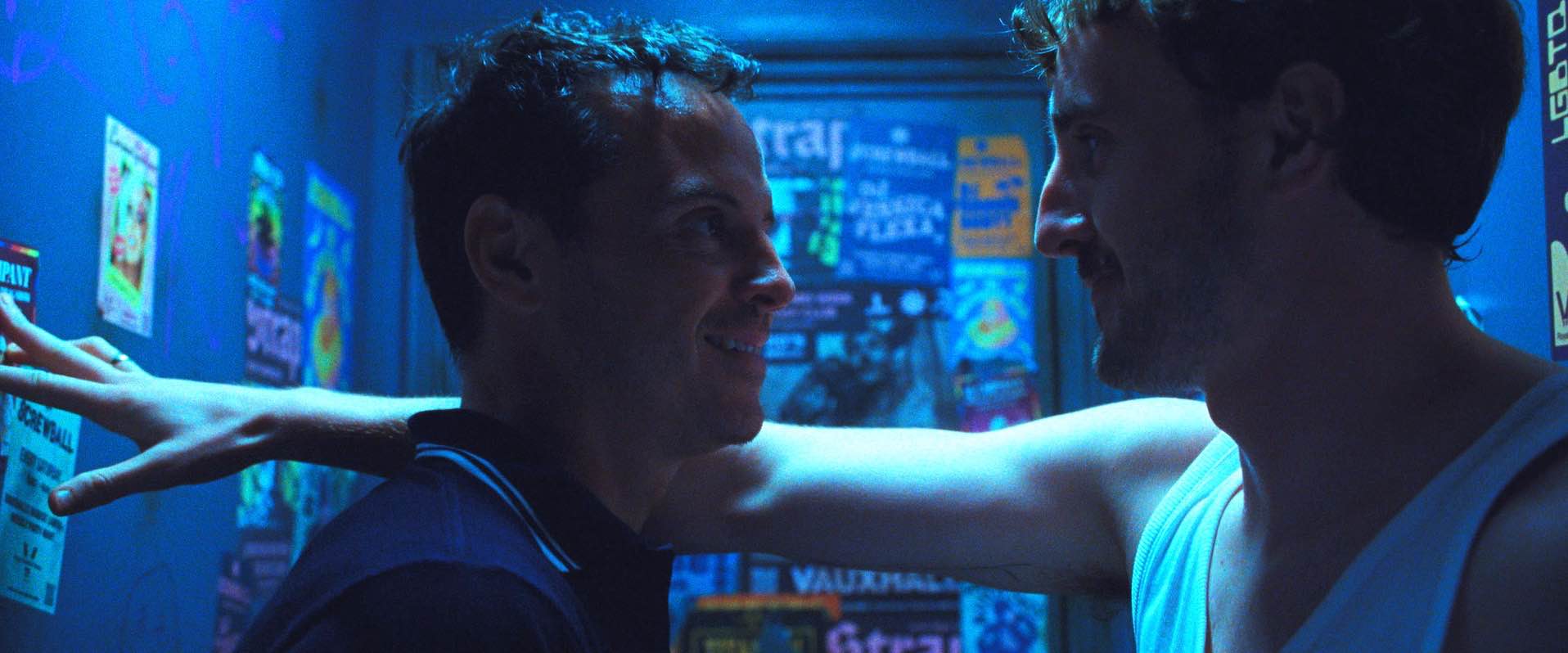
As an Andrew Haigh superfan and scholar (we published the only full-length book about his work), it is no surprise that All of Us Strangers tops my list. I saw it five times in fewer weeks. So, there was no denying this was the movie of the year for me. Like Weekend, it’s a film about learning to open yourself up to a world that’s not as hostile as you think it may be. Indeed, the world of Weekend was a lot scarier than the one that Adam finds himself in here.
In 2021, I talked to Haigh about Weekend. He would have been prepping for All of Us Strangers at the time. I realize now that we were probably talking about it, too. It means the interview is surprisingly raw, not yet filtered through PR speak and a thousand other interviews. That interview has shaped how I think about other Haigh films. It also meant that when All of Us Strangers came around, I was like, “OH, this is ALL the things you were talking about!”
Here’s an excerpt from my review of All of Us Strangers
“They say it’s a very lonely kind of life,” comments Mum, who may be a ghost or a figment of Adam’s imagination. She looks the same as the day she died thirty plus years ago. Her fortysomething son Adam (Andrew Scott) has just unexpectedly come out to her, and she’s worried about him. “They don’t actually say that anymore,” Adam angrily rejoins. “Everything’s different now.” But when he goes over it again later that night in bed with his paramour Harry (Paul Mescal), he revises that statement to something less defensive and a little more true: “Things are better now. Course they are. But it doesn’t take much to make you feel like you felt back there again, skin all raw.”
It could be the thesis statement of writer-director Andrew Haigh’s heartrending and healing film All of Us Strangers, which collapses the distance between past and present by offering Adam the opportunity to visit with his long-dead parents, Mum (Claire Foy) and Dad (Jamie Bell), back in his childhood home. Denied his childhood as both a queer boy in the 1980s and an orphan at age twelve, Adam still carries the trauma of being accidentally abandoned by his parents, who died when he needed them most, and the fear that they would have left him anyway had they known who he was. The wounds may be old, but they still feel fresh, and they’re getting in the way of Adam living a fulfilling life.
Read the full All of Us Strangers review
Now in cinemas in the US, UK, and Canada.
